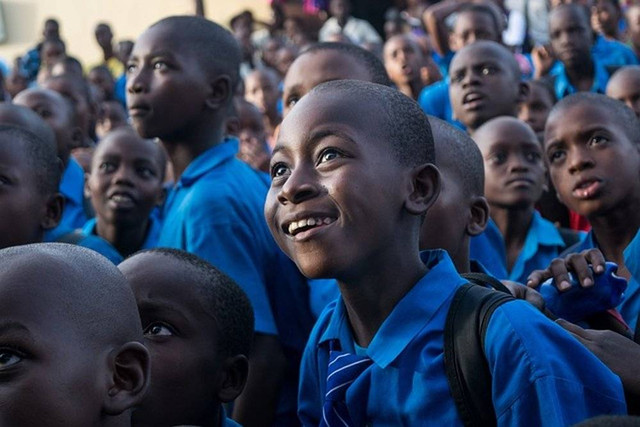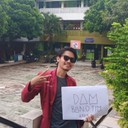Tentang KamiPedoman Media SiberKetentuan & Kebijakan PrivasiPanduan KomunitasPeringkat PenulisCara Menulis di kumparanInformasi Kerja SamaBantuanIklanKarir
2025 © PT Dynamo Media Network
Version 1.103.0
Konten dari Pengguna
Achievements of the Merdeka Belajar Program in Higher Education
20 Juni 2024 17:38 WIB
·
waktu baca 8 menitTulisan dari Fikri Ahmad Faadhilah tidak mewakili pandangan dari redaksi kumparan
ADVERTISEMENT
The Merdeka Belajar program initiated by the Minister of Education and Culture, Nadiem Makarim, has become a game-changer for education in Indonesia. Since its launch in late 2019, the program aims to provide freedom and flexibility for students in designing their academic journey. With a vision to create education that is more adaptive and relevant to the times, Merdeka Belajar at the lecture level has become the center of attention of various groups. From policy makers to education practitioners, this program is considered a breath of fresh air that offers solutions to various problems that have long been rooted in the higher education system in Indonesia.
ADVERTISEMENT
However, like all new policies, Merdeka Belajar faces challenges in its implementation. The big question that arises is whether this program is really able to turn vision into reality? Are the achievements that have been achieved in accordance with the original objectives promoted? And what are the prospects for the sustainability of this program in the future? This article will discuss in depth the achievements of Merdeka Belajar Program at the lecture level and evaluate its impact on the higher education system in Indonesia.

Background of Merdeka Belajar Program
Merdeka Belajar's vision includes several important aspects, namely flexibility in the curriculum, improving the quality of education, and relevance to the needs of industry and society. This program provides space for students to learn off campus through internships, humanitarian projects, research, and other forms of practical learning. In addition, Merdeka Belajar also encourages recognition of learning gained outside the formal classroom, including work experience and training.
ADVERTISEMENT
One of the main initiatives of the program is the "Kampus Merdeka" policy, which includes eight core programs, including the right for students to take courses outside their study program, internships, village projects, teaching in schools, research, entrepreneurial activities, independent studies/projects, and humanitarian projects. This policy is designed to provide students with a broader and deeper learning experience, and equip them with the necessary skills to face the world of work.
Achievements of Merdeka Belajar Program
Since its launch, Merdeka Belajar Program has shown various significant achievements. First, there is an increase in student participation in off-campus activities. Many students now have the opportunity to intern at companies, engage in humanitarian projects, or conduct research relevant to their field of study. This not only enriches their learning experience, but also improves practical skills that are urgently needed in the world of work.
ADVERTISEMENT
Second, Merdeka Belajar has encouraged collaboration between universities and industry. With the internship program integrated into the curriculum, students can learn directly from practitioners and understand industry needs more deeply. This collaboration is not only beneficial for students, but also for companies that can utilize knowledge and innovation from the academic world.
Third, flexibility in the curriculum allows students to pursue their interests and talents outside of the main study program. For example, an engineering student can now take courses in business or art, which can enrich their perspectives and skills. This is in line with Merdeka Belajar's goal to create graduates who are not only experts in their fields, but also have diverse cross-disciplinary skills.
ADVERTISEMENT
Challenges in Implementation
Despite many positive achievements, the implementation of Merdeka Belajar Program also faces various challenges. One of the main challenges is the readiness of higher education institutions to adopt this policy. Many universities are still stuck in a rigid system and curriculum, making it difficult to provide the flexibility promised by Merdeka Belajar. In addition, limited resources, both in terms of finance and teaching staff, are another obstacle that must be faced.
Another challenge is the gap between vision and reality in the field. Many students still find it difficult to get internship opportunities or off-campus projects, especially in less developed areas. In addition, recognition of learning outside the formal classroom is still an issue that requires more attention. Without clear evaluation and recognition mechanisms, students may not get the full benefit of their learning experience outside the classroom.
Strategies for Overcoming Challenges
ADVERTISEMENT
To overcome these challenges, several strategies and concrete steps are needed. First, higher education institutions need to carry out curriculum reforms that are more adaptive and responsive to the needs of students and industry. This reform must involve all stakeholders, including lecturers, students, and industry representatives, to ensure that the curriculum developed is truly relevant and applicable.
Second, increasing the capacity of lecturers and education personnel is very important. Lecturers need to be provided with training and assistance in implementing more flexible and competency-based teaching methods. In addition, it is also necessary to have support in the form of adequate resources and facilities to support the implementation of Merdeka Belajar Program.
ADVERTISEMENT
Third, there is a need to increase cooperation between universities and industry and society. This collaboration must be built based on mutual understanding and mutual benefit. Universities need to be proactive in establishing partnerships with companies and community organizations to create more opportunities for internships, humanitarian projects, and collaborative research. In addition, it is also necessary to have incentives for companies that are willing to become partners in the Merdeka Belajar Program, such as tax deductions or special awards from the government.
Fourth, the development of a transparent and accountable evaluation and recognition system is essential. This system must be able to objectively measure the achievements and impact of Merdeka Belajar Program and provide equal recognition for students who have participated in learning outside formal classes. This evaluation mechanism must cover various aspects, including practical skills, knowledge, and attitudes, so that it can provide a comprehensive picture of the competencies possessed by students.
ADVERTISEMENT
Prospects for the Sustainability of Merdeka Mengajar Program
The sustainability of Merdeka Belajar Program depends heavily on the commitment of all parties involved, including the government, educational institutions, industry, and the community. To ensure that this program can continue to run and have a positive impact, strategic steps are needed that involve increasing the capacity of educational institutions, financial support, and establishing a clear framework for learning evaluation and recognition.
One important step is the strengthening of cooperation between universities and industry. This collaboration should be based on mutual understanding and mutual benefits, with a focus on improving the quality of education and relevance to industry needs. In addition, there needs to be financial support from the government to assist universities in implementing Merdeka Belajar policies, especially in terms of providing the necessary facilities and resources.
ADVERTISEMENT
Another step is the development of a transparent and accountable evaluation system to measure the achievements and impact of Merdeka Belajar Program. This system must include a mechanism for recognizing learning obtained outside formal classes, so that students can obtain credits equivalent to their learning experience. In addition, there is a need for training for lecturers and teaching staff to adapt more flexible and competency-based teaching methods.
In addition, there are also challenges in terms of adjusting mentality and academic culture. Major changes in the education system require a change in mindset from all stakeholders, including lecturers, students and education personnel. Many lecturers are still accustomed to traditional teaching methods and may find it difficult to adopt a more flexible and competency-based approach. There is also a need to expand access and opportunities for students in remote or less developed areas. The government and educational institutions need to pay special attention and provide more support to students in these areas, such as providing scholarships, facilitating internships, and humanitarian projects. Thus, the benefits of Merdeka Belajar Program can be felt by all levels of society without exception.
ADVERTISEMENT
Therefore
Merdeka Belajar program has paved the way for the transformation of higher education in Indonesia. By giving students the flexibility and freedom to design their academic journey, this program is able to create graduates who are better prepared to face the challenges of the world of work. Despite the many positive achievements that have been made, the implementation of this program still faces various challenges that require attention and cooperation from all parties.
The sustainability of Merdeka Belajar Program in the future is highly dependent on the commitment to continuously improve the quality of education and relevance to industry needs. With the right support, both from the government, educational institutions, and industry, the vision of Merdeka Belajar can truly become a reality that brings positive changes to the higher education system in Indonesia. This program is not just a policy, but a big step towards a better and more sustainable educational future.
ADVERTISEMENT

